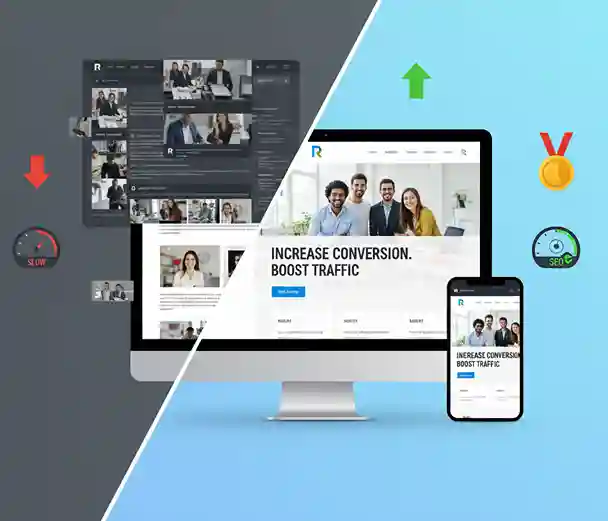

2025-10-06
Why is a Website Critically Important for the Medical Sector?
Medical Website Importance: Attract Patients & Build Trust.
Tags:
The provision of medical services is no longer limited to the walls of a clinic. The first thing 80% of patients do when they need a doctor or medical assistance is search for information on Google. For a medical institution, private practice, or individual doctor, a high-quality, SEO-optimized website is not just a business card; it is the most crucial tool for attracting patients, building trust, and demonstrating expertise.
1. Trust and Expertise: Your Digital Office
In the medical sector, trust is the number one currency. A website works to reinforce this trust 24/7.
- Transparency: A quality website allows you to clearly present the clinic's licenses, certificates, achievements, and operating standards.
- Meet the Doctors: Detailed pages with biographies, education, and specializations of doctors (with photos) significantly reduce patient anxiety before a visit. This is a direct path to higher conversion, as people choose a doctor, not just a clinic name.
- Medical Content: Publishing relevant, accurate articles, blogs, and guides demonstrates expertise, increases the user's time on the site, and improves your site's ranking for queries like "flu symptoms" or "back pain treatment."
2. Patient Acquisition and SEO Benefits
A website is the foundation for effective healthcare digital marketing. Without it, all advertising efforts will be ineffective.
- Geographical SEO: Patients often look for services nearby: "dentist [area]," "pediatrician [city]." Proper SEO optimization allows your clinic to appear at the top of local Google results.
- Key Queries: By optimizing the site for specific service names ("ultrasound joints price," "book cardiologist appointment"), you attract targeted traffic that is ready for conversion (booking an appointment).
- Speed and Mobile: Most searches occur on mobile devices. A fast, adaptive medical website that meets Google PageSpeed requirements gains a ranking advantage.
3. Converting Functionality: Convenience for the Patient
A modern medical website must be more than just an informational resource; it must be a multifunctional tool.
- Online Booking (Must-Have): The most important element for conversion. The ability to quickly book an appointment through a form or integrated calendar, without the need to call, significantly increases the number of visits.
- Online Consultations and Telemedicine: The website is the platform for implementing modern services, which is especially relevant after the pandemic.
- Feedback: A section for testimonials, a question form, and integrated live chat facilitate communication.
4. Competitive Advantage in the Digital Era
Competition in the healthcare sector is increasing daily. Those who invest in medical website development and promotion gain a significant advantage.
The website acts as a central hub, consolidating all your healthcare digital marketing channels (social media, PPC advertising, email newsletters). It is the one place where you completely control information, the booking process, and brand communication.
If you aim to create a reliable, multifunctional resource that meets high medical standards, it is worth considering professional corporate website development. Creating such a website
Conclusion:
Investing in a professional, high-quality, and SEO-optimized website for a medical centre is not an expense but a strategic investment in the future of your practice. It is a direct path to increasing trust, growing your patient base, and ensuring stable growth in the digital health
Last News.






